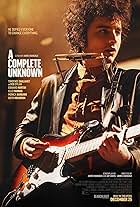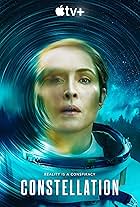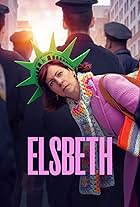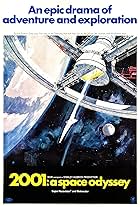thinkMovies
Se unió el oct 2010
Te damos la bienvenida a el nuevo perfil
Seguimos trabajando en la actualización de algunas funciones del perfil. Para ver los distintivos, los desgloses de las calificaciones y las encuestas para este perfil ve a versión anterior .
Calificaciones141
Calificación de thinkMovies
Comentarios113
Calificación de thinkMovies
Man creates Dances With Wolves.
Man spends 35 years in Hollywood.
Man gives birth to Horizon.
The End
What happened?
Someone needs to publish "Understanding Horizon for those who don't". I sure did not understand who was doing what to whom and why...
There seems to be four different stories some in the southwest, some in the north. Time passes but we don't really know how long or how fast. Folks are shot. A lot.
Suddenly everything speeds up and you deduce you may be watching scenes from Chapter Two. Or not.
We're waiting for Godot but he ain't coming because he's stuck in a wagon train somewhere near Horizon.
Man spends 35 years in Hollywood.
Man gives birth to Horizon.
The End
What happened?
Someone needs to publish "Understanding Horizon for those who don't". I sure did not understand who was doing what to whom and why...
There seems to be four different stories some in the southwest, some in the north. Time passes but we don't really know how long or how fast. Folks are shot. A lot.
Suddenly everything speeds up and you deduce you may be watching scenes from Chapter Two. Or not.
We're waiting for Godot but he ain't coming because he's stuck in a wagon train somewhere near Horizon.
Útil•10
There's Texas cowboys and then there's Montana cowboys. The two legs of the American fairytale. Sometimes Sheridan's plot twists sound too unreal, if recounted, but feel so true to life when watched on screen with production values that have not a single blemish, with inspired casting and flawless acting.
There's a mythology that makes America larger than life and there's nothing wrong with that; mythology built the memory and the dreams of all human civilization. Taylor Sheridan has done an amazingly good job at making us proud of that mythology, making us want to believe it's true. And, in a way it becomes true.
Life-values forged from the gut of those who will not let go. Achievement forged from the heart of those who love enough to not stop believing. Men and women making their own luck for the next generation to carry it on, beyond.
Of the three Yellowstones so far, 1923 is probably the very best incarnation of the story. Season 2 of 1923 leaves any future sequels or prequels in the Yellowstone universe with very big boots to fill.
Well done.
There's a mythology that makes America larger than life and there's nothing wrong with that; mythology built the memory and the dreams of all human civilization. Taylor Sheridan has done an amazingly good job at making us proud of that mythology, making us want to believe it's true. And, in a way it becomes true.
Life-values forged from the gut of those who will not let go. Achievement forged from the heart of those who love enough to not stop believing. Men and women making their own luck for the next generation to carry it on, beyond.
Of the three Yellowstones so far, 1923 is probably the very best incarnation of the story. Season 2 of 1923 leaves any future sequels or prequels in the Yellowstone universe with very big boots to fill.
Well done.
Útil•6424
The film gets one thing absolutely right: Robert Allen Zimmerman from Duluth Minnesota is truly an unknown, having systematically crafted his persona as unknowable. Also, he is one of the most important songwriters of all time.
Did his heart honestly and humbly lead him to Woody Guthrie's hospital bed, and to the attention and recognition of Pete Seeger and of already famous and important Joan Baez, or did he attach himself to them in order to craftily start at the top, "bursting on the scene already a legend"? Maybe both?
In the film, if you blink, you'll miss the unexplored depth and nature of the relationship between Joan Baez and Bob Dylan. "The unwashed phenomenon, The original vagabond, he strayed into her arms; And there he stayed, Temporarily lost at sea, The Madonna was his for free, Yes, the girl on the half-shell, Could keep him unharmed". Where is all this in the film in all its centrally important nature and depth?
Also glossed over, blink and miss the point, the relationship with "Sylvie Russo" (Elle Fanning) in the movie, standing-in for Dylan's real-life muse and lover Suze Rotolo.
He starts revering Woody, Pete and folk music, and he ends his life-overture, 1961-1965 by completely and irreverently betraying and discarding Pete Seeger and the Newport Folk Festival. Was that Dylan evolving into what he became to our greater culture, or was it a user who had no further use for those who gave him his ascent?
And Chalamet? Did he craft a labor of love, or did he find a subject that would make for a profitable film? Or, both? Unknown.
I started by crying incessantly for the first 10-or-so minutes of the film -even though Pete Seeger, in real life, was not there when Dylan first visited Woody Guthrie, and Woody, in real life, never gave Bob his harmonica. By the end of it, the film felt to me like it is really not at all a film about Bob Dylan but, in fact, about Pete Seeger. Who knew... In my opinion, Edward Norton more than deserves the Oscar for inhabiting Pete Seeger.
It was Pete who discovered and was then betrayed by someone who was in fact on his own, with no direction home, A complete unknown, like a rolling stone... How does it feel, how does it feel?
Who would have Bob Dylan been had he not written Blowing in The Wind, The Times They Are A-Changin', or Mr. Tambourine Man? Or Highway 61 Revisited?
Last thing before the end credits we are told that Bob Dylan is the only songwriter to be awarded the Nobel Prize in Literature, but he did not attend the ceremony. Why? Out of humility? Maybe because he did not recognize it or care for it? Or to make a point in arrogance and superiority? Perhaps all of the above?
Did his heart honestly and humbly lead him to Woody Guthrie's hospital bed, and to the attention and recognition of Pete Seeger and of already famous and important Joan Baez, or did he attach himself to them in order to craftily start at the top, "bursting on the scene already a legend"? Maybe both?
In the film, if you blink, you'll miss the unexplored depth and nature of the relationship between Joan Baez and Bob Dylan. "The unwashed phenomenon, The original vagabond, he strayed into her arms; And there he stayed, Temporarily lost at sea, The Madonna was his for free, Yes, the girl on the half-shell, Could keep him unharmed". Where is all this in the film in all its centrally important nature and depth?
Also glossed over, blink and miss the point, the relationship with "Sylvie Russo" (Elle Fanning) in the movie, standing-in for Dylan's real-life muse and lover Suze Rotolo.
He starts revering Woody, Pete and folk music, and he ends his life-overture, 1961-1965 by completely and irreverently betraying and discarding Pete Seeger and the Newport Folk Festival. Was that Dylan evolving into what he became to our greater culture, or was it a user who had no further use for those who gave him his ascent?
And Chalamet? Did he craft a labor of love, or did he find a subject that would make for a profitable film? Or, both? Unknown.
I started by crying incessantly for the first 10-or-so minutes of the film -even though Pete Seeger, in real life, was not there when Dylan first visited Woody Guthrie, and Woody, in real life, never gave Bob his harmonica. By the end of it, the film felt to me like it is really not at all a film about Bob Dylan but, in fact, about Pete Seeger. Who knew... In my opinion, Edward Norton more than deserves the Oscar for inhabiting Pete Seeger.
It was Pete who discovered and was then betrayed by someone who was in fact on his own, with no direction home, A complete unknown, like a rolling stone... How does it feel, how does it feel?
Who would have Bob Dylan been had he not written Blowing in The Wind, The Times They Are A-Changin', or Mr. Tambourine Man? Or Highway 61 Revisited?
Last thing before the end credits we are told that Bob Dylan is the only songwriter to be awarded the Nobel Prize in Literature, but he did not attend the ceremony. Why? Out of humility? Maybe because he did not recognize it or care for it? Or to make a point in arrogance and superiority? Perhaps all of the above?
Útil•03

























